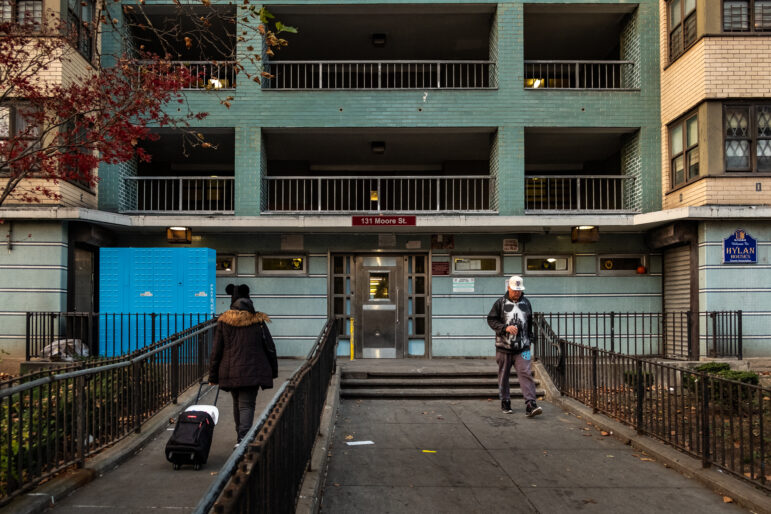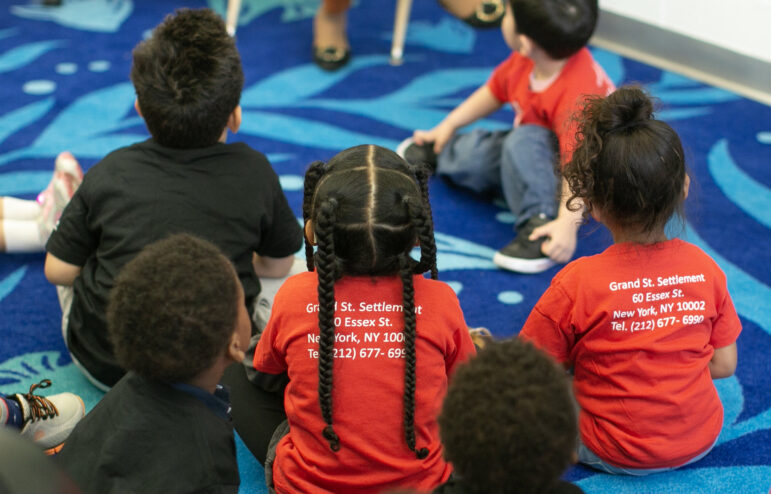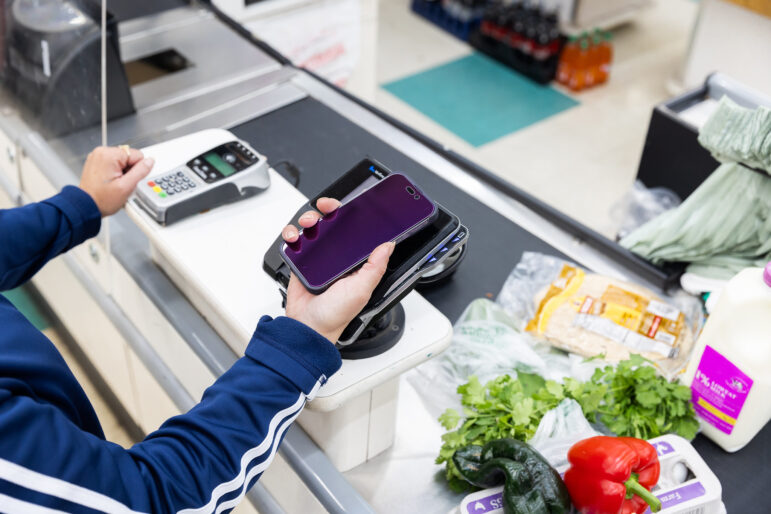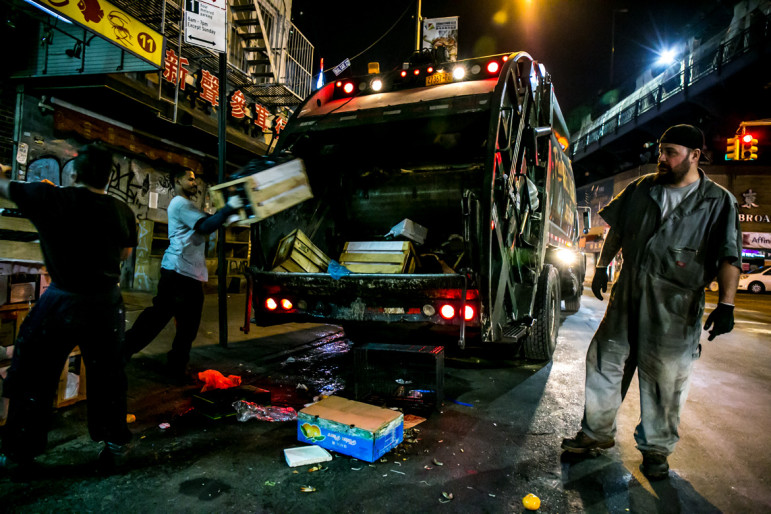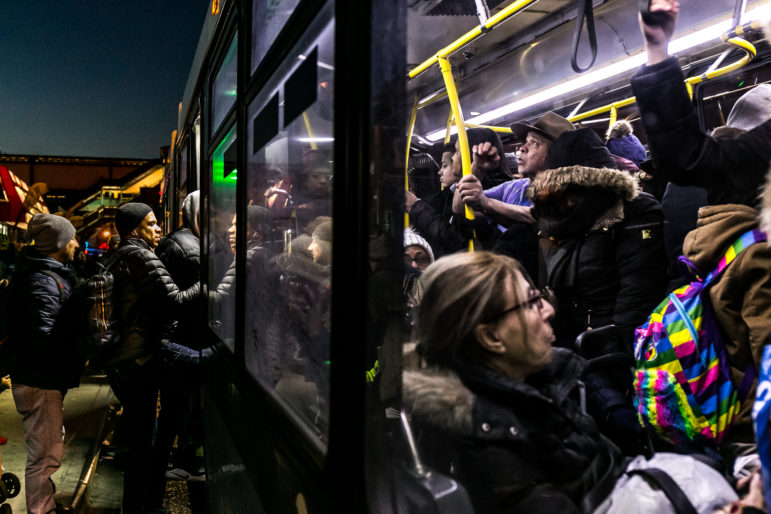A lawmaker is calling for the city to automatically schedule vaccination appointments for New Yorkers who’ve been fully inoculated against COVID-19, but have yet to get a booster shot. Only 36 percent of city residents have gotten the additional dose so far.
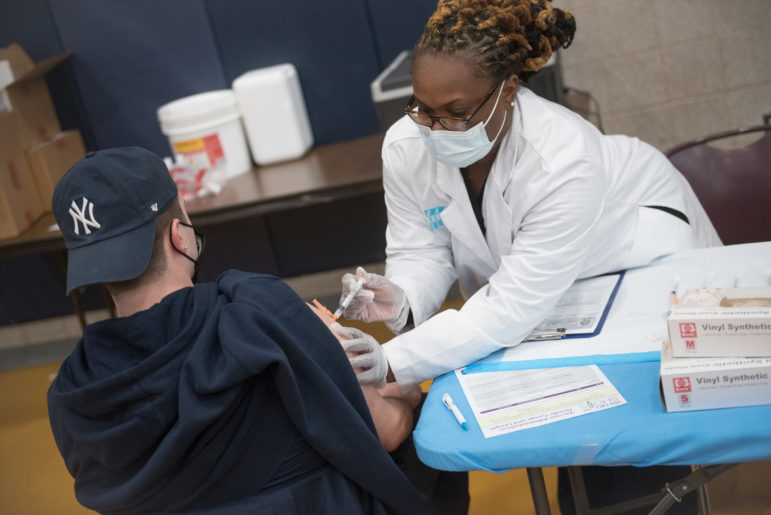
While more than three-quarters of New York City’s population is fully vaccinated against COVID-19, only 36 percent have gotten a booster shot for the virus—a lag that some local leaders say makes the city more susceptible to future outbreaks.
Manhattan Borough President Mark Levine is calling for the city to start automatically scheduling booster appointments for the more than 3 million New Yorkers who’ve been vaccinated, but have yet to get their additional shot. The move, he said, would motivate residents who aren’t opposed to vaccination but “who just haven’t gotten around” to booking a booster, which health experts say offers the greatest protection against serious illness from COVID-19. Residents targeted for the automatic appointments would receive postcards, emails and texts from the city informing them that a slot had booked for them at a local vaccine site.
“You might not actually go to the appointment, but we think that many people will, because it will give them that nudge,” Levine said at a press conference announcing the proposal Wednesday. “If we can make it easy by giving them an appointment, taking care of that step for them, we believe they will show up, get their shot and that will save lives here.”
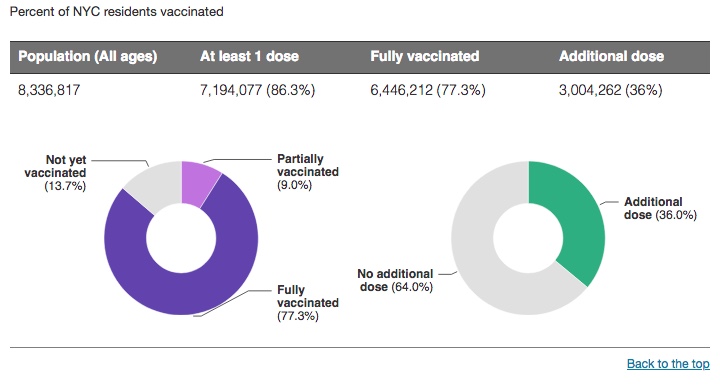
NYC Department of Health (Screenshot)
Vaccination rates for all ages by dose, as of March 16, 2022.
The idea was unveiled as one facet of the Manhattan borough president’s “Stay Healthy to Stay Open” plan to manage COVID. The five boroughs are now seeing lower community spread of coronavirus, prompting Mayor Eric Adams last week to roll back the city’s school mask mandate and proof-of-vaccine requirement for indoor venues. But an Omicron subvariant emerging in Europe may change things if, or when, it arrives in New York, Levine said.
“We don’t want a repeat of what happened [with] Omicron,” he added, referring to the spike in positive cases across the city during the holiday season. Levine wants to ramp up the city’s disease surveillance system, so experts can better predict those kinds of surges. “It was a huge setback for what had been a recovery for New York City back in November. We don’t want that to happen again.”
New York ranks 25th compared to other states when it comes to COVID boosters: 44.4 percent of the state’s fully-vaccinated residents have gotten the additional shot so far, according to Becker’s Hospital Review (Vermont has the highest booster rate in the nation, at 59 percent).
In New York City, Manhattan leads the boroughs on boosters, with 46 percent of residents, while only 27 percent of Bronxites are boosted so far. Major disparities can also be seen by race, age and neighborhood. In Queens’ Edgemere/Far Rockaway zip code, only 18 percent of residents are vaccinated and boosted, the lowest in the city. Manhattan’s Financial District has the highest rate, at 70 percent.
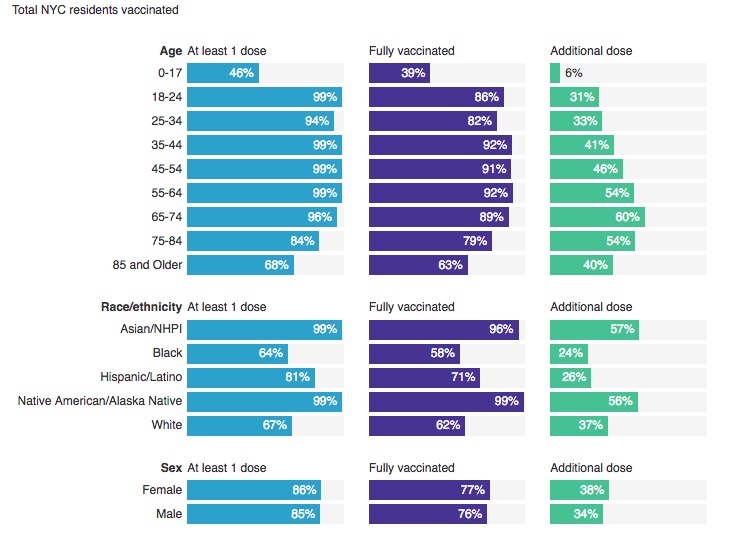
NYC Department of Health (Screenshot)
Vaccination rates for New York City residents.
Levine’s plan also calls for repurposing workers from Test & Trace, the city’s soon-to-be-phased-out contact tracing program, to conduct door-to-door vaccine outreach instead. It proposes the widespread distribution of high-quality masks, such as KF94s and KN95s, to public and private spaces across the city, so they’d be as “ubiquitous” as toilet paper and hand sanitizer.
“These are the types of simple measures that government can do to help really facilitate people being able to protect themselves,” said Dr. Jay Varma, an epidemiologist and former public health adviser for Mayor Bill de Blasio, who accompanied Levine at Wednesday’s announcement.
“I want to emphasize that public safety is not just crime. Public safety is public health,” Varma added, pointing to Mayor Adams recent focus on crime and policing. “If you want an economic recovery, people also have to be healthy. And they have to also feel like when they go out and buy things or go to restaurants that they feel safe from the risk of infection.”
In a statement, a spokesperson for the city’s Department of Health said they “look forward to reviewing” the borough president’s proposals.
“Our surveillance systems are constantly evolving and as we analyze the efficacy of different systems, we’ll work to integrate them into what is presented to the public, so New Yorkers have reliable data to act on,” Press Secretary Patrick Gallahue said. “Data on race and poverty as well as other characteristics are considered in our data and we especially appreciate their prioritization. Equity has been, and must continue to be, at the center of the recovery.”
READ MORE: Should NYC Have a Dedicated ‘COVID Recovery’ Office?



